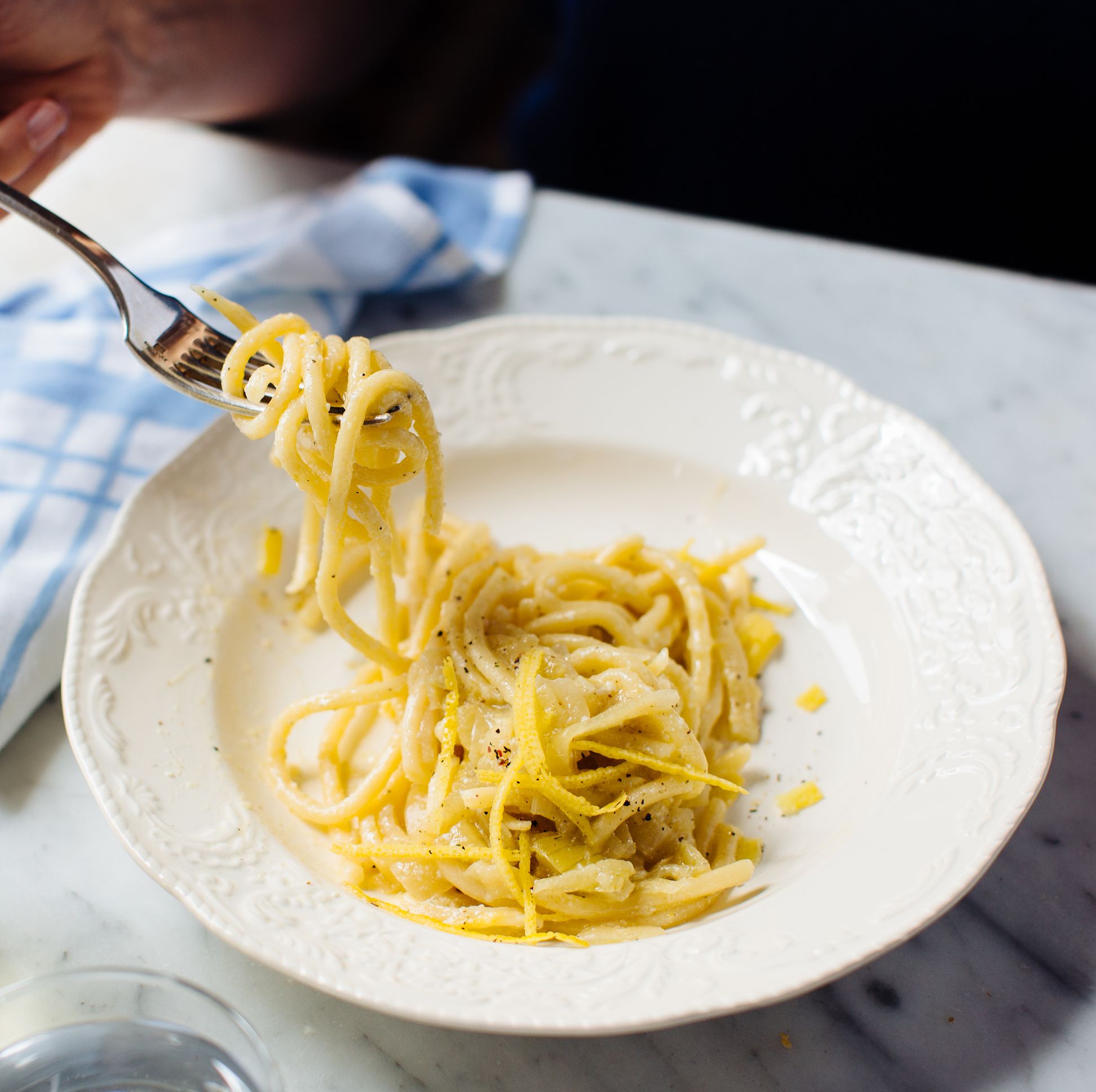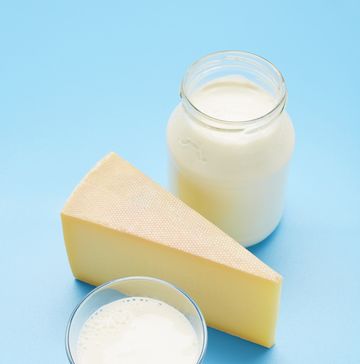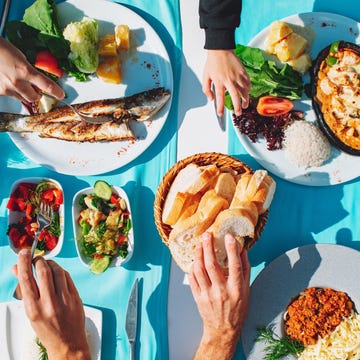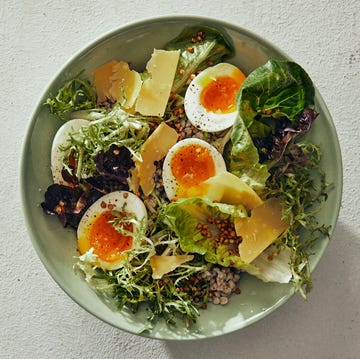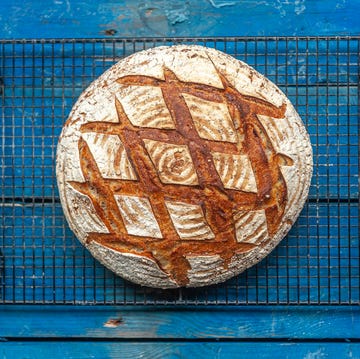Cutting carbs. Ever since the 2002 publication of Dr Atkins Atkins' New Diet Revolution book, swerving linguine, sourdough and basmati have been subjects of contention.
More modern day incarnations of the low-carb, high fat theme (hey, Keto!) have stoked this fire further.
So: what's the truth? What actually happens in your body when you ditch the starch?
Let's dig into it.
Cutting carbs: what's the truth with this one?
There are some things you should definitely cut out of your life. That beige mush lurking in your trusty lunch box at the back of the fridge; your ancient iPhone cover that’s probably harbouring more germs than a toilet seat.
But when it comes to food groups, it all gets a lot murkier.
‘You have to be sure there will be an advantage in avoiding certain foods entirely,’ says British Dietetic Association spokesperson Gillian Killiner.
'If you’re not aware of the nutrients that a food group is providing you with, then you put yourself at risk of developing nutritional deficiencies.’
Experts very rarely advise swerving food groups unless you have a bona fide intolerance or allergy. Consider this your cut-it-out-and-keep guide to healthy food choices.
Cutting carbs: where did the hype begin?
It started with Atkins, was egged on by Dukan and keto-converts are still culling carbs to drop fat. Somewhere along the way, the ‘go low-carb to lose weight’ message was misconstrued as ‘carbs make you gain – and retain – flab, so steer clear permanently’.
Cutting carbs: what's the reality?
Should you need a reminder of what happens to you when you swerve carbs, here goes: when your body runs out of glucose to burn, you go into a state of ketosis whereby your body burns your fat stores for fuel.
As to the efficacy of this process, the research stacks up – there’s plenty of evidence to show that restricting the amount of fast-digesting, blood-sugar-spiking, processed carbohydrates in your diet can help you torch fat.
But your body won’t thank you for it. Side effects of ketosis include fatigue, headaches, nausea and dizziness – not forgetting the infamous bad breath – because, put simply, carbs are an energy source for your body.
It’s why culling carbs isn’t sustainable for many people, and research suggests that the moment you do succumb, your body will cling to the glucose, putting you straight back to square one.
Plus, avoiding carbs completely will also make it hard for you to get enough fibre (essential for healthy digestion), as well as other vital nutrients, such as iron and B vitamins.
Now you know about the result of carb cutting, read up on what carb backloading is.
